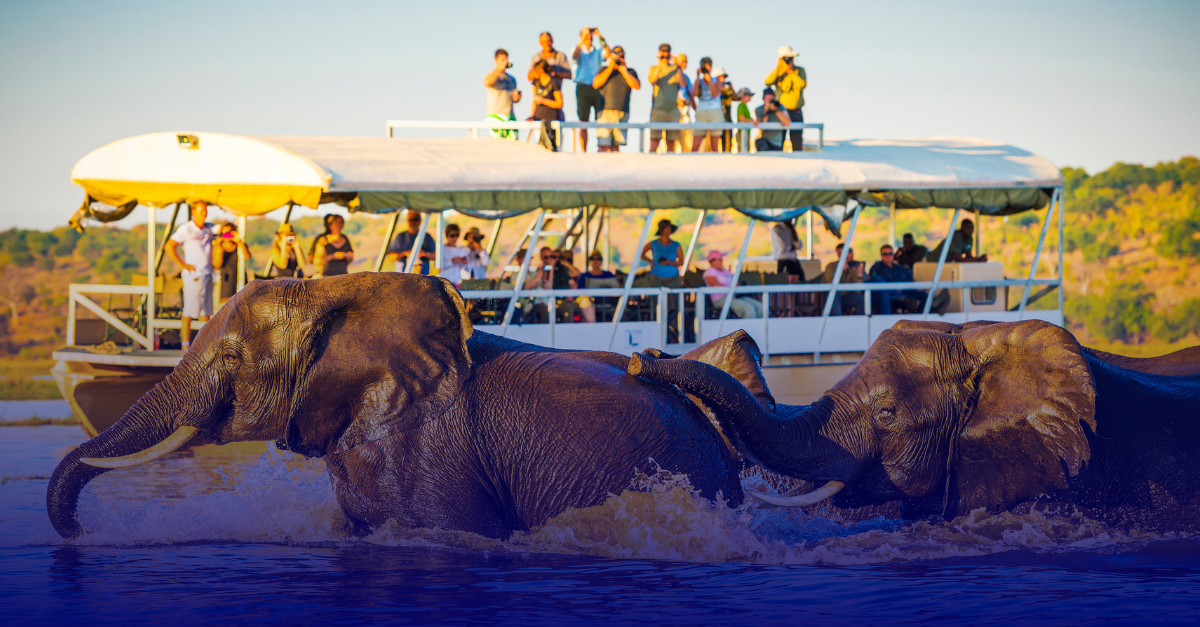How bundu-bashing in Africa can save you from burnout.
We are getting close to the midway mark of 2024 and for many of us, the cracks are beginning to show. According to recent studies, burnout has become increasingly prevalent in the workplace. Sufferers of burnout often do not recognise the condition for what it is, but symptoms can include fatigue, decreased productivity, detachment and negative emotions.
Sometimes, all you need to escape burnout is a change of scenery and few things are better for the soul than a trip to the bush.
Tricia Wood, Business Development Manager at Profitroom says, “Africa boasts rich biodiversity and a unique wildlife providing travellers with the opportunity to have meaningful and responsible travel experiences."
Many safari lodges are eco-friendly and use renewable energy sources such as solar power and wind turbines ro reduce their carbon footprint. Wood added "that according to a recent report by Go2Africa, there has been a 6.4% increase in interest in sustainable tourism since 2022, and a remarkable over 1000% surge in interest over the past four years."
Sustainable safaris aim to minimise the environmental impact of wildlife viewing while also supporting local communities. Like many things in life, there are numerous myths and misconceptions about safaris. Here are some of the most popular ones:
Safaris are too expensive
Some luxury safaris can cost as much as a brand-new car, but that doesn't mean you can't find a reasonably priced way to escape everyday life. Many national parks and game reserves offer a range of accommodations that suit different budgets, from basic campsites to midrange and luxury safari lodges. To plan an unforgettable safari experience, it's important to have the correct information about things like accommodation and activities.
Booking your accommodation directly not only saves money, but also gives them access to special deals, promotions, and package discounts. It also enables guests to tailor their experience according to their preferences and needs. Direct booking provides more flexibility and firsthand knowledge about the destination.
Booking in advance and directly also gives travellers more time to plan and save up. Data from Go2Africa shows that travellers are booking their safaris at different lead times, with notable changes observed over time. In 2023, travellers tended to book their trips with a much longer lead time on average, with the longest lead time being three years in advance.
Ntando Bhengu, Director of New Business at ResRequest, says “technology has revolutionised the travel and tourism industry, including safaris and lodges. Whether you are an avid birdwatcher, a conservation enthusiast, or seeking a romantic escape, travellers can now curate and personalise their experiences based on their budget and interests.”
Safari equals game drives
Going on safari doesn’t necessarily mean you always have to hop into a cloth-clad SUV and leave tyre prints in the wilderness.
Reserves often offer guided hikes, bush walks, boat safaris, quad bike safaris, horse riding safaris, and even hot air balloon rides, allowing visitors to experience the bundus from almost any angle.
Additionally, the safari opens the door to a world of unforgettable experiences, and a chance to embrace adventure while immersing yourself in the wonders of nature and biodiversity. It also provides a unique opportunity to contribute to and support local communities.
And going on a Safari does not mean you do not get to go to the beach, as interest in beach and safari combos has grown by 20% compared to 2022, while safaris remain a popular choice for family and intergenerational travel.
There is no convenience at a safari
Safari lodges are situated in remote areas, but they are designed to be easily accessible. They are usually located near wildlife-rich areas, making it convenient for guests to go on game drives and other safari activities. Lodges often offer transportation services to and from nearby airports or major cities, which makes travel logistics simpler for guests. By booking directly, guests have the option to review available add-ons that can make their trip more efficient.
Safaris are not safe
Safaris are usually safe when led by experienced guides who understand animal behaviour, know how to move through the area safely, and can respond effectively to any potential risks. While being close to wild animals has risks, knowledgeable guides make safaris safe.
When going on safaris and staying in lodges within wildlife reserves, the lodges are usually designed with safety in mind. Safety measures, such as electric fences, trained security personnel, and guidelines for minimising interactions with wildlife, are in place to ensure the safety of guests
No connectivity to the other side of the world
Many safari lodges and camps offer Wi-Fi access in common areas like the main lounge, restaurant, or reception. Bhengu adds, "We understand that technology can enhance the guest experience by providing access to information, interactive maps, and multimedia content that enrich their understanding of the ecosystems. Although safaris are a good opportunity to disconnect, there is still an option to go online if needed."
There is no great food at safaris
Many safari lodges offer a variety of delicious food options, catering to different dietary preferences and requirements. The dining experience may vary depending on the safari operator, location, and level of accommodation. Additionally, by booking directly, guests have the opportunity to review the available menu.
Taking time out of our busy days to recharge, reflect, and rejuvenate is often the answer to becoming more productive. Whether you are seeking a staycation, a place to create memories with your loved ones, or simply some time to learn about nature, a safari experience has something for everyone!
-Mar-11-2025-10-07-16-4716-AM.jpg?width=2000&name=Reception%20with%20Guest_00125%20(3)-Mar-11-2025-10-07-16-4716-AM.jpg)





.png)



.png?width=531&height=427&name=Grafiki%20GB%20%E2%80%93%201200x645%20(2).png)






